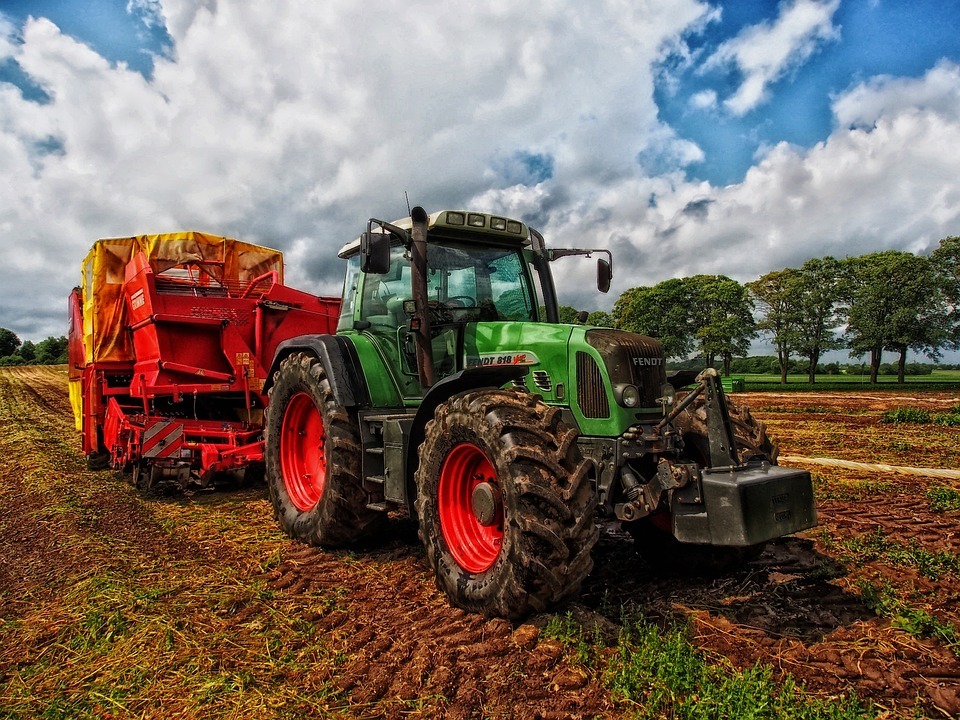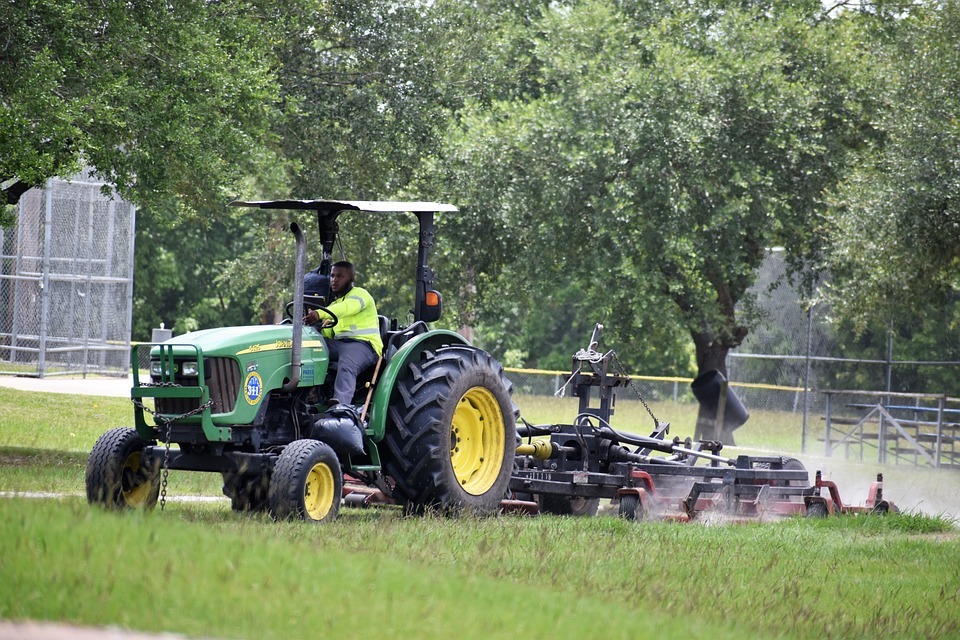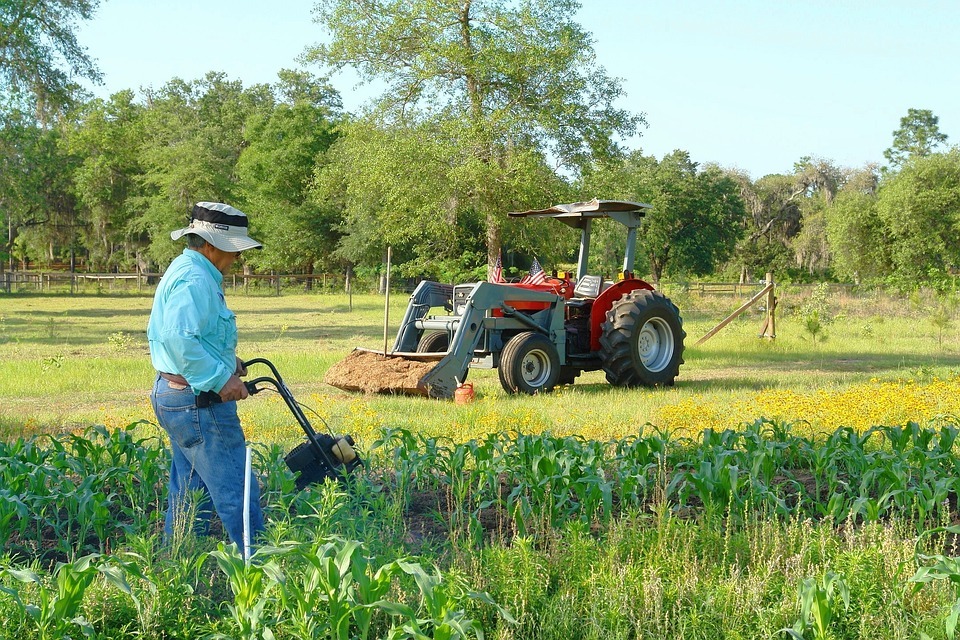Since the days of tilling the soil with animals and great labor, farming has come a long way. Tractors have become a vital tool in modern agriculture, revolutionizing how we farm. Tractors come in various shapes, sizes, and designs, each with unique qualities that make them appropriate for a given duty. Whether you are a small-scale farmer or a major commercial operator, the tractor you choose can considerably impact your farming operations. In this post, we’ll look at the various types of tractors used in farming and their specialized duties to help you make an informed selection when choosing the best tractor for your needs.
1. Utility Tractors
Utility tractors, sometimes known as standard tractors, are built to do various farming tasks. These tractors are highly versatile and capable of plowing, tilling, planting, and pulling large implements, making them indispensable tools for farmers. They are available in different powers ranging from 45 to 140 horsepower, making them appropriate for small to medium-sized farms.
One of the primary benefits of utility tractors is their versatility. Farmers may attach other equipment to these tractors, such as harvesters, tillers, hay cutters, and threshers, making them even more versatile. These tractors often feature gasoline or diesel engines that are efficient and powerful enough to pull extensive equipment.
Utility tractors are an ideal choice for farmers who cannot afford to buy specialized machinery. Instead, customers can rely on these flexible tractors to swiftly complete various duties. Furthermore, these tractors are generally straightforward to maintain and repair, making them a cost-effective solution for farmers.
View this post on Instagram
2. Row Crop Tractors
Row crop tractors are a common type of tractor seen on farms where crops are grown in rows. These tractors are built to do various farming duties, such as weed management, leveling, plowing, harrowing, and pulling seed drills. They are all-purpose tractors that can be utilized for various tasks, making them a good choice for farmers in need of a versatile vehicle.
Row crops are crops that are cultivated in a row on irrigated ground. When it grows, the interrow is dug thrice or four times, and weeds are sown in those rows. It retains moisture and increases oxygen levels. Corn, beans, tomatoes, carrots, cucumbers, potatoes, and many other crops are the most famous row crops grown.
Row crop tractors provide several advantages, making them an excellent choice for farmers who plant crops in rows. Row crop tractors have more ground clearance than other tractors, allowing them to easily traverse uneven terrain and obstacles in the field. They have thin profiles that enable farmers to effortlessly navigate them between agricultural rows without hurting the plants. This makes them excellent for use in areas with rows of crops.
View this post on Instagram
3. Orchard Tractors
Orchard tractors are a type of tractor specifically intended for use in orchards. They are specially designed to traverse through rows of trees while causing no harm to the trees or the fruit they yield. These tractors are usually tall and slender, allowing them to fit between tree rows without injuring the branches or fruit.
Orchard tractors are powerful enough to transfer farm equipment from one site to another. This can include trailers, cultivators, or other orchard maintenance apparatus. They may also plow fields or farmland, especially in tight spaces surrounding trees. This is an essential duty in orchard management since it helps to prepare the soil for planting and keeps the trees healthy.
Orchard tractors are used for several jobs in the orchard, including seeding. They are also utilized for plant care and fruit harvesting. An orchard tractor’s precision steering allows for precise seeding, ensuring each seed is placed at the exact depth and spacing. Orchard tractors can disc (till) the soil in preparation for planting. This is vital for preparing orchards for tree growth because it loosens the soil and ensures that nutrients are adequately dispersed.
View this post on Instagram
4. Compact Tractors
Compact tractors are an adaptable and dependable option for small-scale agricultural tasks. They are more maneuverable and less harmful to crops and soil because of their smaller size and weight, and they are also less expensive than larger tractors. They’re frequently used for landscaping, mowing, and light-duty farm tasks, including lifting small loads, tilling gardens, and moving hay bales. They can also be utilized in orchards or vineyards for small-scale harvesting, planting, and other chores.
Compact tractors are typically powered by diesel engines rated from 15 to 50 horsepower. They often have a 540-rpm PTO (power take-off) to power attachments like mowers, loaders, and backhoes. They also commonly employ a three-point hitch system, which is common on agricultural tractors. When working on rough terrain, the three-point hitch is a hydraulic device that allows the tractor to lift and lower attachments while also providing stability and maneuverability.
Compact tractors have several advantages, including decreased fuel use, ease of maintenance, and cost. They are also available in two-wheel and four-wheel drive configurations, making them appropriate for a wide range of applications and terrains. Furthermore, small tractors can be outfitted with various attachments, such as front-end loaders, backhoes, mowers, and snow blowers, making them highly versatile for usage in multiple applications.
View this post on Instagram
5. Sub-Compact Tractors
Compact tractors that are much smaller in size are known as sub-compact tractors. They perform many of the same functions as their compact counterparts but with a smaller frame and a lower price. They are easy to maneuver and are ideal for first-time tractor owners with modest farms or acreages.
Hobby farming is one of the most common applications for subcompact tractors. These tractors are lightweight and straightforward to use, making them ideal for small-scale farming chores such as cultivating, planting, and tilling. They can also assist with weed management, mowing, and light load transporting.
Sub-compact tractors can also be used to mow limited areas. They can readily traverse through narrow spaces and around obstacles because of their small size and mobility. As a result, they are an ideal choice for homeowners with tiny lawns, gardens, or orchards.
Subcompact tractors can do minor towing and hauling chores in addition to mowing. They may not be able to tow huge loads, but they can tow trailers and carts of moderate weight. As a result, they can be used to transport gardening tools, equipment, or supplies throughout the property.
View this post on Instagram
6. Garden Tractors
Garden tractors, sometimes known as lawn tractors, are built for homeowners’ use on lawns or gardens. They’re small and low-powered, often ranging from 1 to 10 horsepower, which is adequate for activities that a homeowner might need to do. Their tires look like scooter tires but have much larger treads for increased traction and longevity. They are utilized for tasks such as cutting grass and planting fresh flower beds.
Because of their small size and low power, these tractors are perfect for use in home gardens, where larger tractors would be difficult to maneuver. Garden tractors are most commonly used for lawn mowing, allowing homeowners to cut their lawns while seated.
Garden tractors are used for snow removal in addition to mowing. They can clear driveways, sidewalks, and other small areas of snow with the addition of a snow plow attachment. They can also transport yard garbage generated by landscaping tasks such as clearing branches and other debris from the yard.
Garden tractors are also useful for a variety of landscaping activities. They can clear land and build new flower beds, and they’re handy for spreading dirt, mulch, and other things around a garden. Because of their mobility and tiny size, they are a good alternative for these duties.
Things to Consider When Buying a Farming Tractor
When deciding which type of tractor to buy, it’s critical to first evaluate the precise work at hand. As previously said, there are various sorts of tractors, each suited for a certain duty.
If you require a tractor for agricultural work, you could be better suited with a farm tractor, the several sorts of which are discussed above. Farm tractors are built to do a range of jobs, such as plowing, tilling, planting, and harvesting. They are frequently outfitted with a three-point hitch that facilitates the connection of various instruments, such as plows, cultivators, and mowers.
Furthermore, tractors for specific applications, such as orchard tractors, compact tractors, and sub-compact tractors, are also available. Orchard tractors, for example, are developed expressly for use in orchards, where their compact profile and specialized tires allow them to traverse between rows of trees. Compact tractors are intended for use by homes or small farms, while sub-compact tractors are even smaller and less expensive.
Also, smaller farm areas often require less strength and horsepower. In fact, choosing equipment that is too powerful for your project may make the task more complicated than necessary. If you have a small farm or area, a compact tractor or lighter-weight vehicle is preferable. Narrower spaces also need smaller vehicles, whereas a wider area may require a row cropper or an earthmover, depending on the job.
It is also vital to select the appropriate attachment for the task at hand, as well as ensure that it is appropriate for the tractor’s category and power. While many tractors have similar attachments, not all are identical. Furthermore, the variety of a tractor with a three-point hitch impacts the power and capacity of its implements.
In conclusion, tractors are a crucial tool for contemporary farming and are available in a range of types and sizes, each designed to meet particular demands. A tractor can help you get the job done, whether you’re working on a vast farm or a little plot. Numerous alternatives are available, ranging from heavy-duty orchard tractors to compact versions ideal for small gardens. Understanding the many types of tractors and their capabilities allows you to choose the best tractor for your unique needs and ensure that your farming duties are completed swiftly and successfully.



